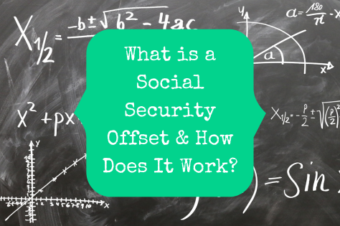
If you are a church employee, you may have to file Schedule SE (even though you’re not self-employed) and pay double payroll taxes. This is why.
The US Tax Code is one of the most complicated things out there, coming in a close second to a fifteen-year-old girl’s emotions. And things are even more complicated for church staff and licensed ministers. For church people, it gets so convoluted that even paid tax preparers get thrown off.
Awhile back I helped a friend prepare her taxes to save her the $175 that H & R Block had been charging. She was a college student and part-time administrative assistant at our church. Single, no kids, no mortgage or investments, seemingly simple. It was anything but simple.
During the process, I discovered that the two previous years her taxes had been prepared incorrectly. The preparer at H & R Block had overlooked the fact that she was a church employee. They didn’t file the right forms to have her pay the 15.3% payroll taxes. Because of their mistake, she had to refile for the two previous years and pay hundreds of dollars in taxes.
“I don’t get it,” she asked, “Why do I have to file like I’m self-employed if I’m not?” Honestly, for the years that I worked at the church, I didn’t get it either. Even though our church included a notice about it with the W-2s every January, it went right over my head.
If you’re confused right now because your church does pay payroll taxes for its non-minister employees, it’s because some churches do and some don’t. That’s just for non-minister employees, churches aren’t allowed to pay payroll taxes for ministers.
Why Are Some Churches Exempt And Others Aren’t?
If a church is opposed to the payment of Social Security and Medicare taxes for religious reasons, they can file IRS Form 8274 requesting an exemption. Once it is approved, they are not required to pay those taxes for their employees.
Usually, an employer pays half of the tax and the employee pays the other half. If you are an employee of an exempt church, you pay the whole tax since the church pays nothing. If you feel like you are paying double what your friends are, it’s because you are.
What Are Payroll Taxes?
The taxes that we are talking about paying are the Federal Insurance Contributions Act (FICA) taxes. These are the taxes that are paid to support Social Security and Medicare. The current Social Security tax rate is 6.2% for the employer and 6.2% for the employee. Therefore, an employee of an exempt church pays 12.4% of their income for Social Security. The current rate for Medicare is 1.45% each for the employer and employee, so exempt church employees pay 2.9%. The total FICA tax for an employee of an exempt church is 15.3% of their income.
How Are The Taxes Paid?
Most employers withhold FICA taxes just as they withhold income taxes and it shows up as a line on the employee’s pay stub. Exempt churches do not withhold any FICA taxes. In order to pay the FICA (called SECA when paying as if self-employed) taxes, the employee must file IRS Form 1040 Schedule SE, the same form that self-employed individuals use. That is why employees of exempt churches are often referred to as being self-employed for payroll tax reasons and are said to pay self-employment taxes.
On a positive note, you don’t have to pay income taxes on the part that the employer usually pays. You can deduct half of the payroll taxes paid on your tax return to lower your Adjusted Gross Income, which is the income you pay taxes on. That will be calculated as a part of your Schedule SE and there are clear directions for how to do it.
In order to save their employees from being ambushed by a hefty tax bill each April, many exempt churches withhold extra income tax throughout the year. They calculate it so that the extra income tax withheld is the same amount of payroll taxes due. That way the extra withholding balances out the extra taxes owed. If you find yourself owing the IRS every year because of payroll taxes, you should ask to have more money withheld from your paychecks. This article explains your different options for paying the proper amount of taxes (it’s written to pastors but works the same way for employees of exempt churches).
Preparing your taxes correctly and on time is very important. It’s a matter of integrity and the IRS has immense power to go after what is lawfully theirs. Make sure your tax preparer has a solid understanding of IRS rules as they pertain to employees of exempt churches. And if you have any doubt, review your past tax returns to make sure you have been paying correctly. Check the end of this article to find a tax preparer who understands church taxation.




3 Responses
Jeff Pospisil
February 14, 2022How interesting! I knew that ministers could opt out of SS/Med, but I had no idea that churches could too.
Amy
February 23, 2022Yes they can, but it gets really confusing for their employees!